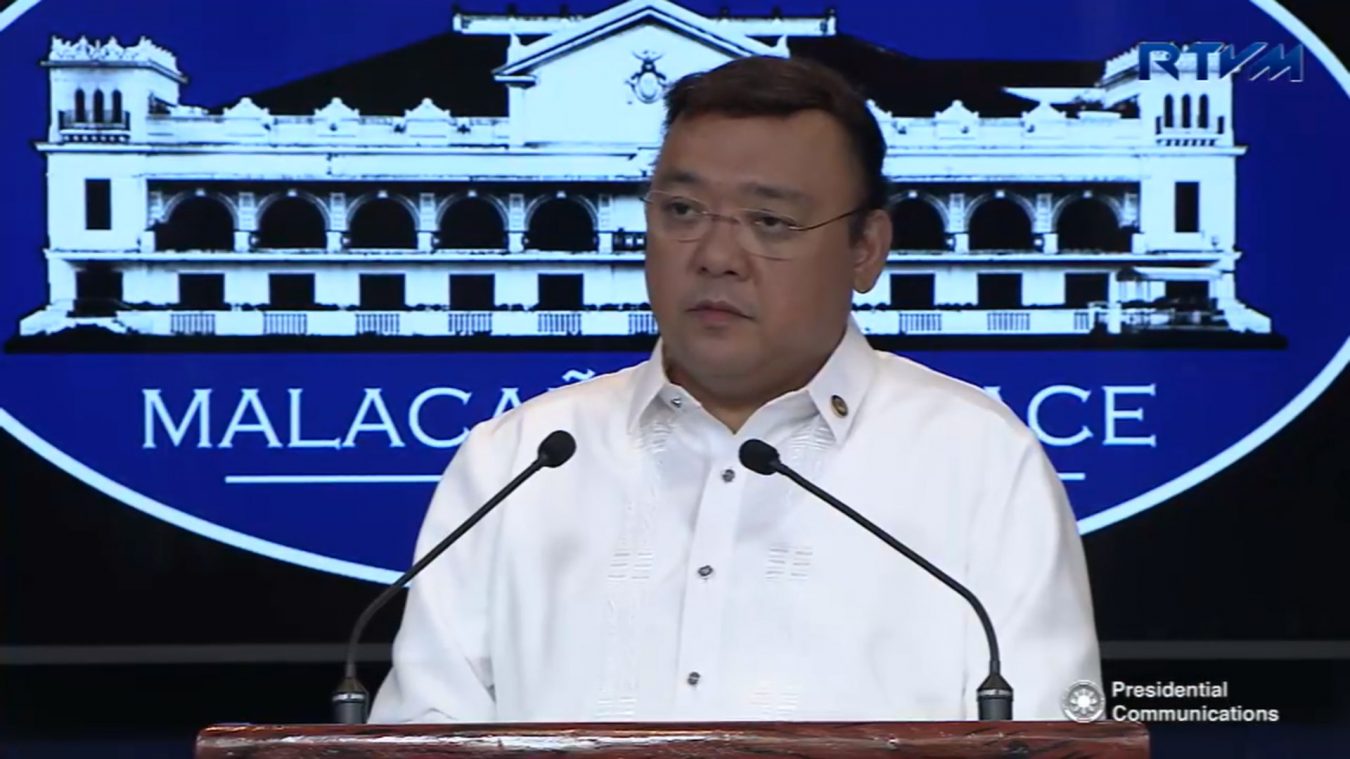Headline
Palace: Duterte may still sign endo EO

This was opposed to what Roque and Labor Secretary Silvestre Bello announced the other week (PCOO Photo)
While both the administration’s Presidential Spokesperson and Labor Secretary earlier confirmed that the President had other plans other than signing an executive order (EO) to end the country’s contractualization, Malacañang’s latest stand blurs the previous confirmation.
“I can confirm [that] there might be an EO that may or may not be signed depending on their meeting tonight,” Presidential Spokesperson Harry Roque, Jr. said in a press briefing on April 30, Monday, just a few days before Labor Day.
This was opposed to what Roque and Department of Labor and Employment (DOLE) Secretary Silvestre Bello III announced the other week.
“The consensus was that instead of the President signing an executive order on the issue of contractualization, he will instead certify as a priority bill, the bill that is now pending in the Senate on the security of tenure,” Bello said in a press conference on April 19.
According to Bello, this was Duterte’s decision after having talks with him and Executive Secretary Salvador Medialdea.
Labor groups already considered that it was not possible to have a total ban against end of contract (endo), but were at least hoping for Duterte to regulate it.
Associated Labor Union (ALU)’s Spokesperson Alan Tanjusay also said that labor groups recognize the “concern of President Duterte that it is quite impossible for an absolute ban on contractualization.
”
(Read: Labor groups push for endo regulation if not ban)
“It (The EO) can more or less deter it. More importantly, it will serve as a signal or guide to lawmakers if such draft is favorable to workers,” Kilusang Mayo Uno head Elmer Labog said earlier this month.
However, then Senior Deputy Executive Secretary – now the Department of Justice (DOJ) Secretary Menardo Guevarra said that the executive branch’s power is also limited when it comes to endo.
“The main problem there is the things that they want to happen is something that [the] executive department is not empowered to do. Legislative action is needed,” he said in a press briefing on April 2.





















